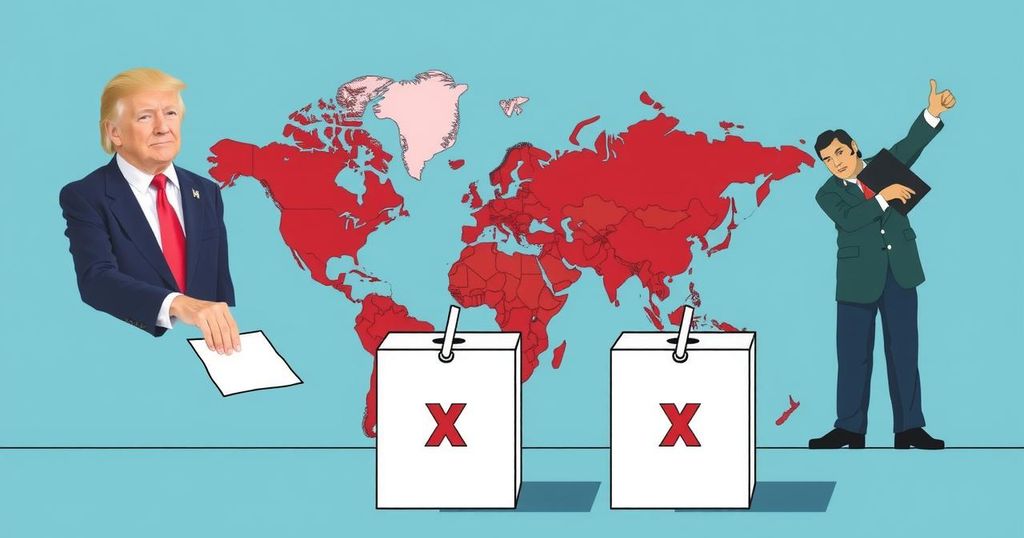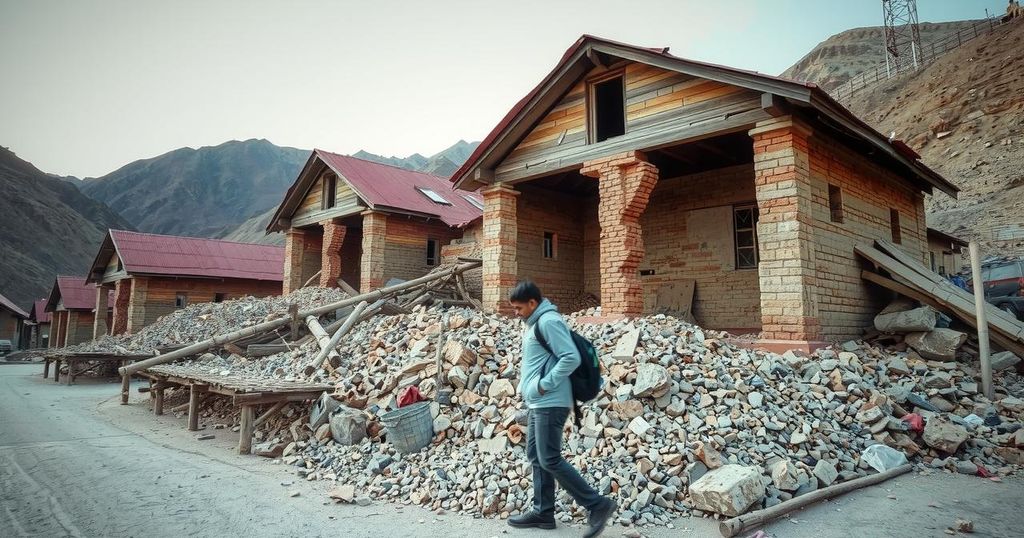Global Elections 2024: A Year of Voter Discontent and Political Turbulence
In 2024, voters in about 70 countries expressed strong dissatisfaction with incumbents, leading to significant electoral upsets and the rise of far-right parties. Economic disruption, political instability, and foreign interference significantly influenced the global political landscape, with protests and unrest in multiple regions exemplifying the challenges democracies face. As countries prepare for elections in 2025, the future of global democracy remains uncertain amidst this turbulence.
As the world witnessed a politically turbulent year in 2024, voters from around 70 countries manifested a clear anti-incumbent sentiment, challenging the status quo across various democracies. From South Africa’s ANC to India’s ruling BJP, many long-standing governments faced harsh rejection, attributed to lingering dissatisfaction from pandemic impacts and rising economic pressures. The electoral landscape has not only experienced dramatic shifts, as observed in Japan, the United Kingdom, and elsewhere but has also seen the rise of far-right parties, illustrating a complex and often troubling democratic reality. Conditions in regions such as Mozambique and Georgia highlight ongoing unrest and allegations of electoral manipulation, often exacerbated by foreign interference. As democracy continues to face significant trials, upcoming elections in 2025 promise to remain contentious, reflecting the unresolved tensions felt by disenfranchised voters worldwide.
The article examines the significant electoral shifts seen globally in 2024, indicating a prevalent dissatisfaction with incumbent governments. Citing issues such as economic disruptions, socio-political unrest, and the enduring effects of the COVID-19 pandemic, the piece illustrates how public sentiment has translated into electoral outcomes. The analysis extends to the marked rise of far-right parties in various countries and details specific instances of electoral malfeasance, highlighting the challenges democracy faces in contemporary times.
In summary, the turbulent electoral landscape of 2024 underscores a widespread discontent among global voters who, disillusioned by economic and social challenges, opted for change, often through alternative political forces. While the anti-incumbent wave appears strong, the emergence of far-right parties raises questions regarding the overall health of democracies worldwide. As nations brace for further electoral contests in 2025, issues of legitimacy, representation, and governance will remain critical and contentious.
Original Source: www.clickorlando.com




Post Comment